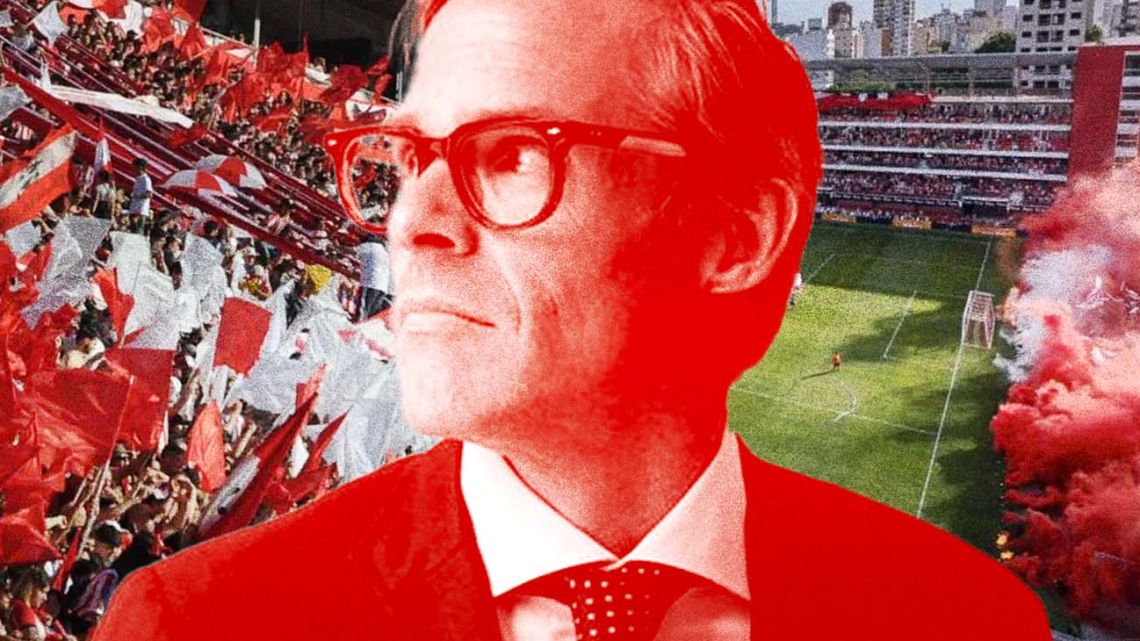President Javier Milei has the bad habit of badmouthing journalists but at least he does not demonise entire newspapers like Cristina Fernández de Kirchner with Clarín (except possibly our parent publication of Perfil) – last weekend he wrote his maiden presidential article for La Nación entitled “The return to the growth path.”
Virtually every economist agrees that after two negative years, a rebound in an infant 2025 is almost inevitable (with most forecasts hovering around the five percent of the now defunct 2025 Budget while the opposition Unión Cívica Radical deputy Martín Tetaz even speaks of possible double-digit growth by midyear) – Milei himself stresses the credit potential offered by the fiscal and quasi-fiscal deficits no longer devouring 15 percent of the economy while also seeing the end of the growth path as lying 40 years ahead – but all this still awaits us with only three percent of this year already in the past. Instead, today’s column will focus on the very current issue of what Domingo Cavallo has called the “exaggerated appreciation” of the currency – reflected in the ongoing mass exodus of summer holidaymakers to Brazil, Chile and even Punta del Este.
Milei has also addressed this issue elsewhere in his usual convoluted techno-babble (when concentrating on economic questions instead of ad hominem insults), dismissing any notion of an “exchange rate lag” as a fallacy. In his eyes, the fiscal solvency sustained throughout last year gives his model a solvency lacking in all the other times the peso was walking taller. Thus the “plata dulce” of José Martínez de Hoz (the military dictatorship’s Economy minister between 1976 and 1981) stemmed from subduing the dollar by constantly upping interest rates whereas the current libertarian administration has dismantled the quasi-fiscal deficit via a downward spiral of interest rates. Strictly speaking, Martínez de Hoz did not increase interest rates but left them free to follow the laws of supply and demand in increasingly speculative fashion against the rigidly pre-programmed devaluations of his tablita. In this context it is also interesting to observe that the chief motor of Brazil’s devaluation is not printing money or Lula having 37 ministries (as Milei might assume) but the upward pressure imposed on interest rates by public debt in a country with an independent Central Bank – in other words, the upward interest rates supposedly causing the overvalued currency of Martínez de Hoz are driving Brazil into devaluation whereas Milei’s downward spiral is resulting in what Cavallo estimates to be 20-percent appreciation. And Milei would ignore what is happening in Brazil at his peril.
Alarmists warn that the real exchange rate is hovering in the region of the final years of the past century when Cavallo’s convertibility was entering into crisis but Milei argues that dollar-peso parity (which has become tantalisingly close in recent months) was undermined by Carlos Menem’s fiscal deficits, a problem he does not face. In his view the exchange rate has to be measured against internal, not external factors – against an inflation plunging from 25-plus percent at the end of 2023 to barely above the “crawling peg” devaluation of a monthly two percent by the close of last year (a pace he now proposes to halve) and against an average wage more than trebling in dollar terms from US$300 to US$1,100. Yet most prices are in pesos, not dollars, while the massive subsidy cuts helping to underpin the fiscal surplus have led to equally giant leaps in utility billing and transport fares at the expense of both consumer spending and saving.
Cavallo views a manipulated currency revaluation as very much swings and roundabouts, accelerating the eradication of inflation while piling up the competitive disadvantages – the former promotes and the latter conspires against a sustained growth which in any case cannot coexist with ‘cepo’ currency and capital controls. What worries the ex-minister in particular is a “formidable” trade surplus estimated at some US$17 billion not being translated into any significant net reserve accumulation by the Central Bank. This is because the pesos to buy greenbacks might be there thanks to fiscal surplus but the dollars are elusive – a strong currency will send imports through the roof at the expense of the local productive sectors (unless they can make the abrupt improvements in productivity to overcome half a century of stagnation outside the Cavallo years) while exports of all kinds will be discouraged, ultimately denting the balance of payments. The chain of payments problems faced by such solid agribusinesses as the Grobos might suggest that some of these fears are already being realised.
Against the accusations of an overvalued currency, Milei would argue that nothing has ever been gained with the numerous devaluations over time (even if he kicked off his own presidency with one of the biggest), which have always made the economy artificially more competitive when at all. When Cavallo warns from his own experience that a strong peso can prolong a recession throughout half a decade (1998-2002), Milei would seem almost to welcome that prospect if only the strong survive, leaving a leaner and meaner economy more genuinely competitive – this would seem to be the aim of the “deeper chainsaw” announced for this year. If Argentina were to change its product mix to resemble more closely his vision of the “golden years” in the decades preceding 1916 – dominated by primary products such as farm produce, mining and oil and gas with hi tech adding a more modern touch – and minus the manufacturing industry created by the subsequent import substitution, this could be “a consummation devoutly to be wished” like death for Hamlet.
Currency appreciation (with the inestimable aid of a tax whitewash inflow of US$32 billion) has been a central factor in giving Milei a dream spring – let us see if that same factor impelling several million Argentines to vacation abroad this summer sends the balance of payments wheel spinning in the opposite direction.









